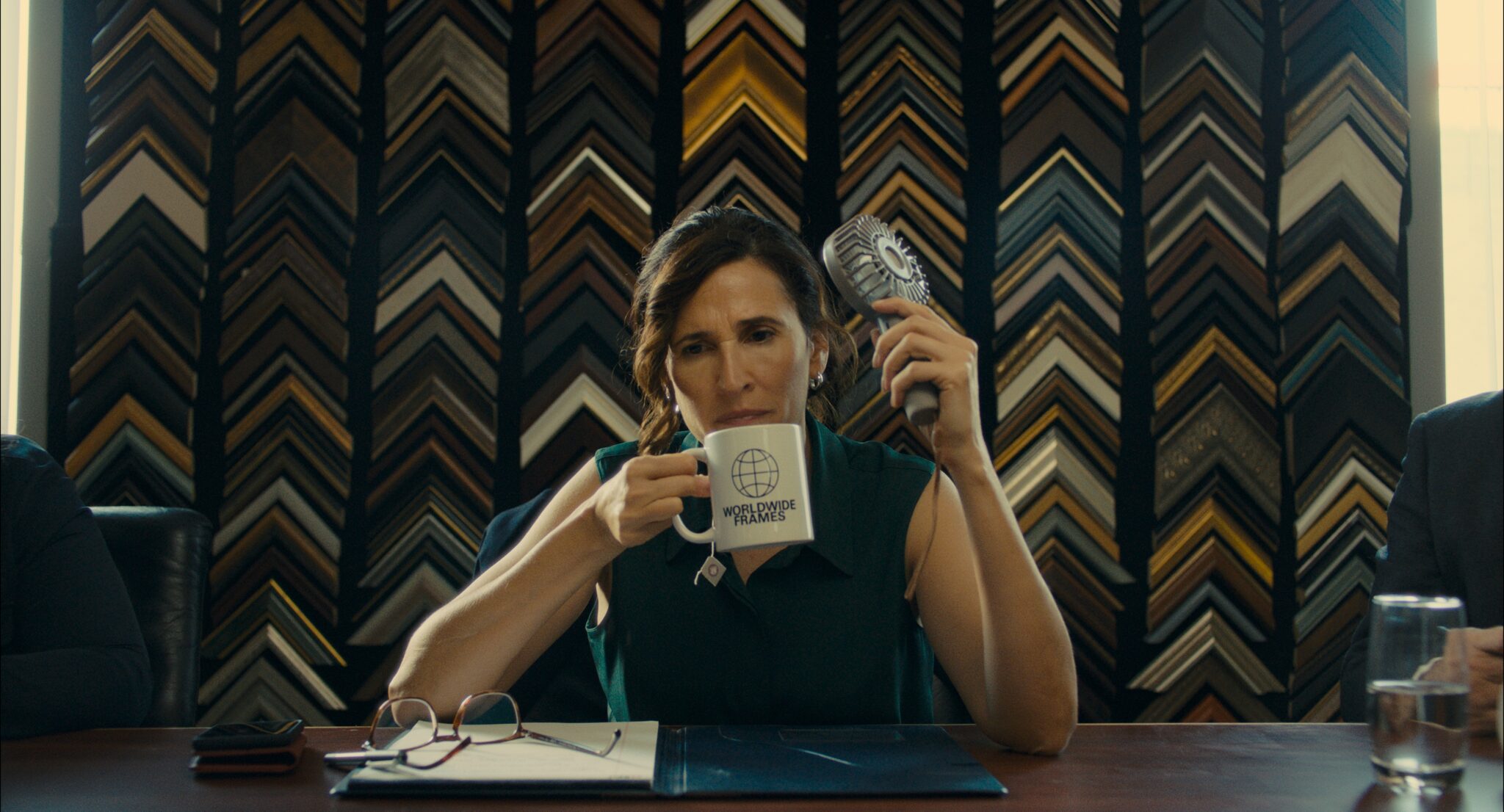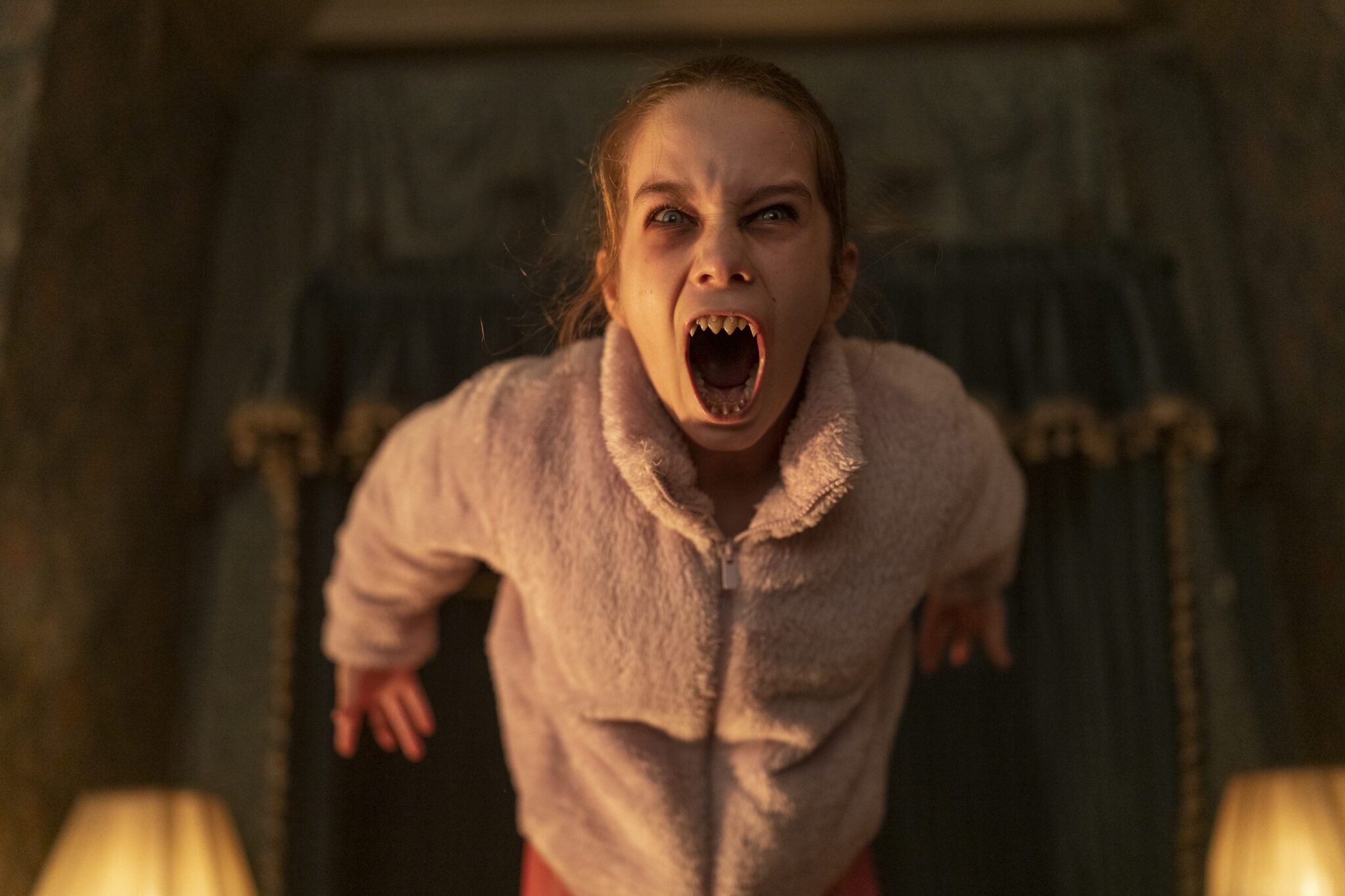There is a sentiment amongst millennial women that getting married and having children is a net negative for them. Women are almost always burdened with 100% of the emotional labour, they end up managing most of the housework, their health deteriorates faster than their spouse and many find themselves with husbands who practice ‘weaponized incompetence’ like it’s their profession. The fear of sacrificing oneself for what seems like a false promise is not a worthy way to spend one’s life.
Suze makes a strong case for these anxieties.
Written and directed by Dane Clark and Linsey Stewart, Suze is a portrait of an emotionally neglected woman wondering if the rest of her life is going to be full of unhappiness and depression. After finding her husband having sex in the family pool with his tennis coach (expressing how much he loves her), Suze finds herself divorced with an irredeemably selfish teenage daughter.
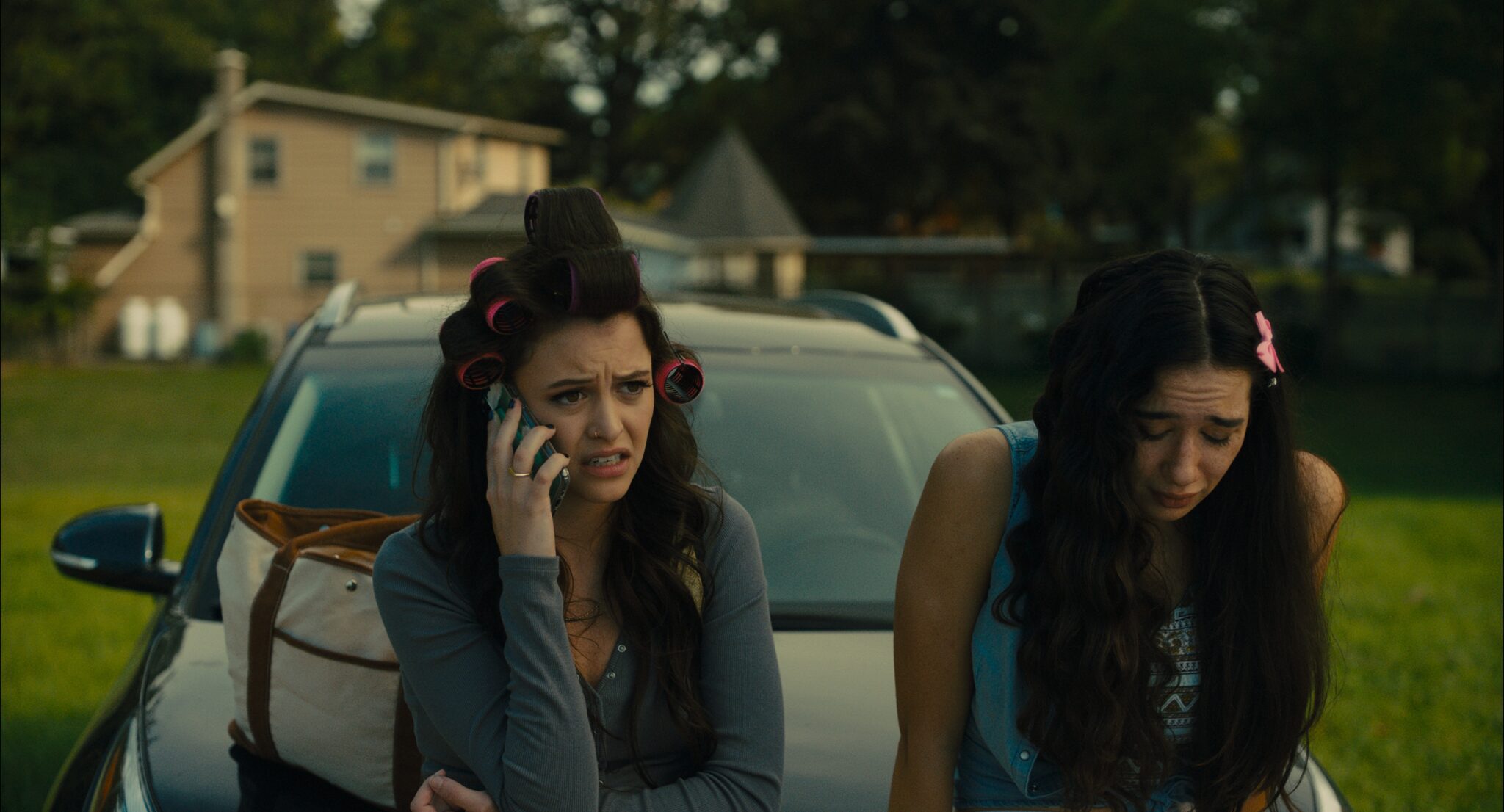
This film explores the invisible pains of motherhood gone wrong. Five years after discovering her husband, Suze (Michaela Watkins) is a single mother who has fully leaned into motherhood as her sole identity. She is frozen in her grief, unable to move forward, symbolized by the half-filled pool that she refuses to use. Suze has made her daughter Brooke (Sara Waisglass) into the centre of her life and Brooke takes complete advantage of that.
Brooke is justifiably frustrated by her mother; Suze wants to spend every minute with her and is always asking for her time. But, instead of giving her mother any grace or compassion, she weaponizes her relationship with her father, threatening to go live with him when she doesn’t get what she wants. She is only affectionate with her mom when she gives into one of her tantrums and validates her friend who calls Suze a “Psycho” when her request to fill the pool is denied.
The only person Suze has in her life doesn’t have any love towards her.
To add insult to injury, Brooke has a better relationship with her father and step-mother; they were the first ones to know she would attend school in Montreal, and she knew about her stepmother’s pregnancy but didn’t tell her mom. What’s worse is the lack of respect from her father towards Suze, who also felt no responsibility to share this news with her.
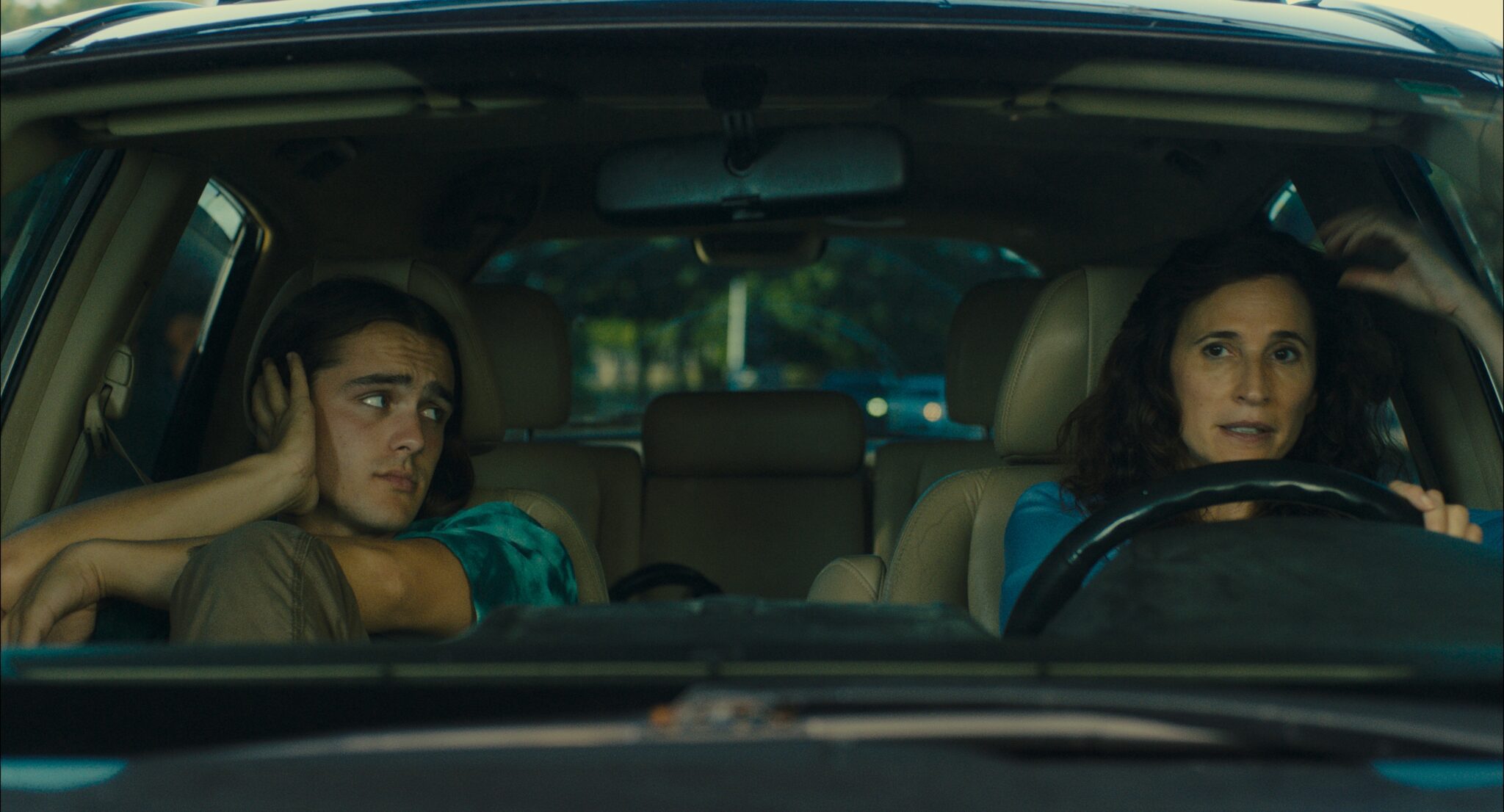
I loved this movie. It made me laugh, cry and feel so much rage for this woman. It is one of the best films I’ve ever seen that explores what a woman is to do with herself when marriage and motherhood don’t pay off. How does a woman find the will to go on after she has given everything to her family only to be told its not good enough, that she’s not good enough? How does she find the will to go on when no one has her back, when no one truly see’s her? Watkins complex performance as Suze makes you feel her despair and emotional entrapment – what other choice could she have made? She was the victim of her circumstance and her husband’s philandering ways and then forced to be the adult for their child while he gets to be happy and the favourite parent.
A stand-out performance from Charlie Gillespie as Gage. Brooke’s misunderstood, himbo ex-boyfriend, balances Suze’s approach to her sadness. While Suze sleep walks through her life, denying her sadness, Gage practices toxic positivity to escape the realities of his own. After Brooke breaks up with him, he tries to commit suicide. Brooke calls her mom to go check on him and, after much guilt tripping, Suze agrees. Initially, our impression of Gage is off-putting. Although he admires Suze, he is very much a horny teenager who doesn’t have any sense of boundaries. He is also unable to graduate and his mom is incarcerated; Suze judges him for this as she is blinded by her co-dependancy with Brooke to see him as a good suitor for her.
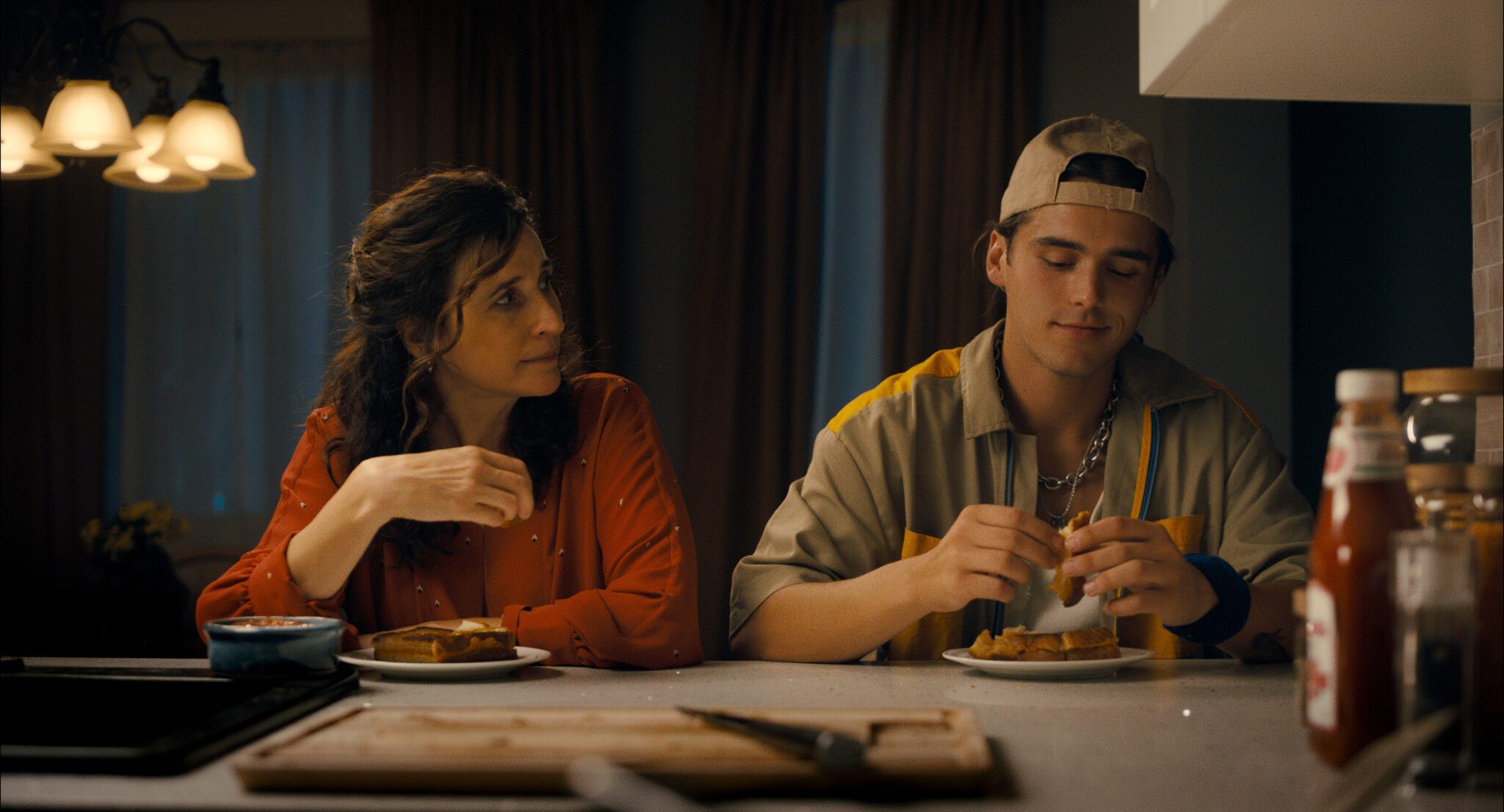
After meeting his emotionally stunted father, Rick, played by the incomparable Aaron Ashmore, we begin to see that Gage is also the victim of his circumstances. His own father treats his suicide attempt as some emotional outburst and refuses to get him any help. His mother has no interest in being there for him and all of his dreams for himself are disregarded because no one believes in him. Much like Suze, waking up everyday is a struggle, finding a reason to keep going feels pointless. All his friends are gone, he is lonely and alone. Brooke makes him feel seen; he looks up to her and respects Suze for raising (in his eyes) a wonderful woman.
Being alive is hard when what is promised to you doesn’t work out. For Suze, she chose family and marriage over her dreams of travelling the world and lost herself in the process. For Gage, it was the promise of possibility of a glorious future, one he’s been convinced he’s not worthy of. Both are so deep in their pain they can’t see a way out until they meet each other and that is what the film (I think) is trying to say. Regardless of one’s circumstances, people need and deserve love and to feel a sense of belonging because, without it, there is darkness. Suze and Gage found the courage to go on within their friendship because they filled each other’s cup and provided new perspectives. It’s okay to choose yourself and it’s okay if choosing yourself over depression and unhappiness happens reluctantly. Just do it, and eventually light will break through.
Suze is in theatres now.

